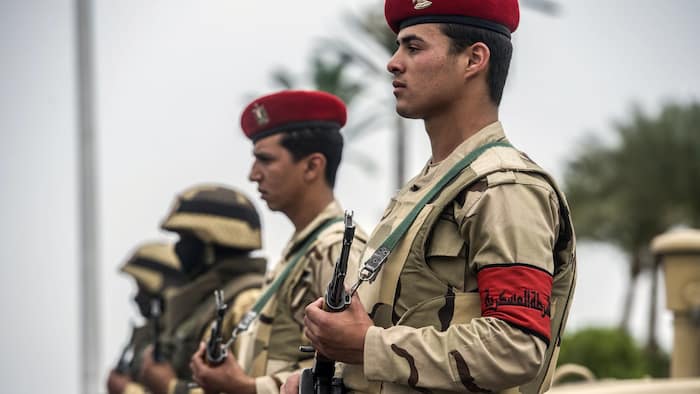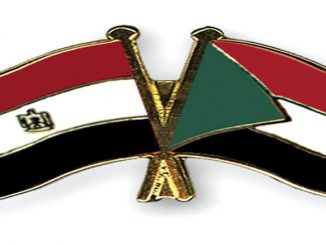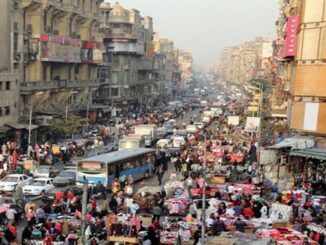
Egypt’s minister of health Ahmed Emad al-Deen said that the ministry signed an agreement with the defense minister to purchase all Egypt’s needs from medical supplies including filters and medical solutions as well as other items, stressing that the military control over the medical supplies market came by direct order “for the benefit of the citizen.”
The new trade business will be managed by the medical service department at the ministry of defense, one of the administrations that follows the supply and logistic department in the armed forces that is responsible for hospitals and medical centers of Egypt’s military.
In the same context, Egypt’s Ministry of Planning and Ministry of Military Production signed a protocol for transferring the administration, operation, maintenance and development of the smart-card system for subsidized goods from the Ministry of Planning to the Ministry of Military Production, according to a cabinet statement, reported Aswat Masriya.
By signing the protocol, the smart-card system for the distribution of subsidized goods is officially under the control of the Egyptian military.
Since the military coup in 2013 led by Abdel Fattah al-Sisi against Egypt’s first democratically elected president Mohamed Morsi the military started to expand its economic empire.
It has widened its economic activity, including producing cement, supplying medical items to hospitals, as well as running the government’s smart-card system for the distribution of subsidized goods, establishing fish farms and manufacturing water meters.
Moreover, last year al-Sisi issued a law that allows the army to set up companies with the participation of domestic or foreign capital.” Armed forces vans roam the country selling cheap groceries and military retail outlets have popped up, while military agencies have attempted to procure basic commodities from international traders amid shortages,” said Reuters.
In this context, Al-Sisi tends to defend the military in every occasion, saying at a national youth conference held in Sharm el-Sheikh recently that, “In case you’re wondering how large the economy of the armed forces is in terms of GDP, I’m going to tell you so it’s clear: 1 to 1.5 %,” according to Reuters.
Reuters also said,” the size of the military, which produces everything from bottled water to macaroni, has long been a topic of speculation in Egypt but official comment on the scope of its economic activities is rare.”
Al-Sisi also claimed that the armed forces are not entering the economy to profit or compete with the private sector, and that their projects are subject to taxes and regulatory oversight.
He also added that the military would deliver 1,350 projects by 2018 but did not specify their exact nature.
There is no doubt that military expansion in business and civilian activities will have negative repercussion on the business environment.
In October 2016, The Financial Times said that because too many Egyptians were suffering from high inflation, the army — which has used its own farms and factories to pump cheap food into the market — has been performing a public service.
However,” Some businessmen fear it will be impossible to compete with an institution that has unrivaled political clout and is protected by law from revealing its accounts,” said the FT.
The editor of the daily Shorouk, Emad al-Din Hussein, wrote that the military deserved “thanks” for stepping in to “solve problems”. But he
also called on civilian and army leaders to “re-evaluate the participation of the armed forces in economic activity”.
He added, “We should also discuss whether the participation of the army has impacted the size of local and foreign investment or not.”
Omar al-Shenety, managing director of Multiples Group, a regional investment bank said the army had “stepped in to inject momentum in the economy at a time of great need”. But he added that it would create unfair competition in some sectors.
Shenety said, “If a company is importing a product and the army comes in as an importer, the company can’t compete.”
“Despite having some justifications, we now have a new reality; there is direct competition between the army and some companies across various sectors.”



